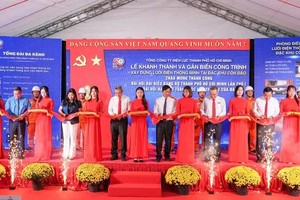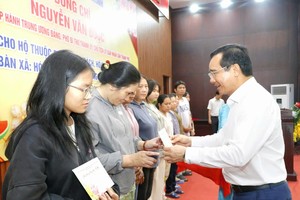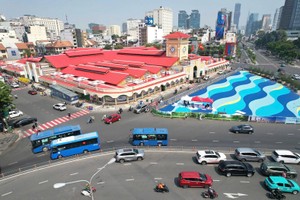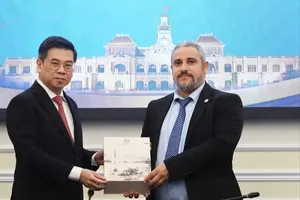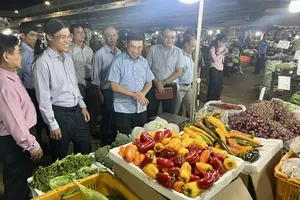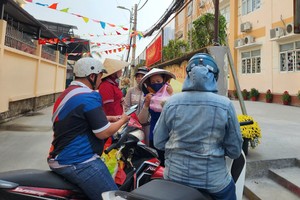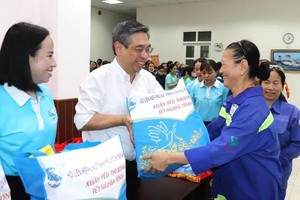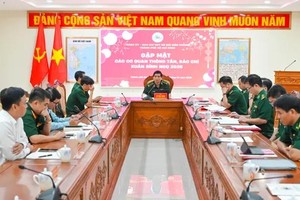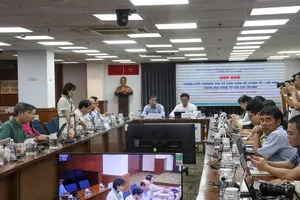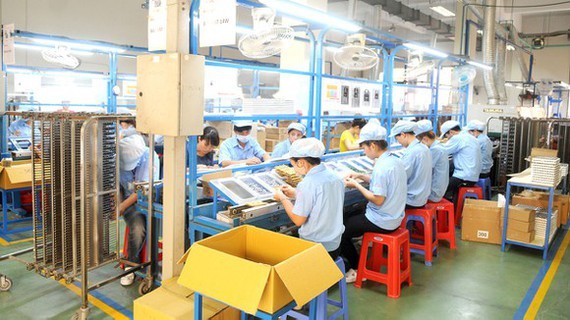 HCMC's human resource demand in the fourth quarter of this year is about 44,000-57,000 workers. (Photo: SGGP)
HCMC's human resource demand in the fourth quarter of this year is about 44,000-57,000 workers. (Photo: SGGP)
According to Mr. Do Thanh Van, policies to support businesses and business households of the Government and HCMC have been contributing to removing bottlenecks, minimizing temporary suspension of operations, and thereby creating jobs for laborers.
On the other hand, the last quarter is an important time for enterprises to complete orders to serve domestic demand and export. Therefore, the demand for human resources in the fourth quarter in HCMC has many positive changes after a long social distancing.
Specifically, business and commerce offer about 13,000 jobs, accounting for 23 percent; personal service and security need about 6,500 workers, accounting for 12 percent; information technology needs about 4,300 workers, accounting for 7.5 percent; mechanical engineering and automation provide about 2,800 jobs, accounting for 5 percent; transporting, warehousing, and port services give about 2,700 jobs, accounting for nearly 5 percent; the consulting and customer care services need about 2,400 workers, accounting for more than 4 percent; tourism, restaurants, and hotels render about 2,300 jobs, accounting for 4 percent.
Meanwhile, Ms. Le Thi Kieu Phuong, Director of HCMC Employment Service Center, said that the center continued to collect information on labor supply and demand to open an online job exchange.
Accompanying businesses and workers in arranging jobs and helping workers quickly settle when HCMC reopens, the HCMC Youth Union has been promoting activities to support laborers from October 1 to November 30, with the participation of 63 provinces and Youth Unions across the country. The HCMC Youth Employment Service Center said that 150 businesses had participated in recruiting 10,000 workers. Noticeably, laborers are introduced to jobs for free. They will get quick Covid-19 testing when going to job interviews or on the first day of coming to a business to receive a job and be introduced to cheap or zero-dong boarding houses.
Mr. Le Minh Tan, Director of the HCMC Department of Labor, Invalids, and Social Affairs, added that the department had directed the HCMC Employment Service Center to organize online job trading floors in districts and Thu Duc City to connect businesses and laborers. The department also focuses on introducing occupations that are allowed to resume operations under the "new normal" conditions, helping workers to grasp information and apply for jobs.
On the other hand, the last quarter is an important time for enterprises to complete orders to serve domestic demand and export. Therefore, the demand for human resources in the fourth quarter in HCMC has many positive changes after a long social distancing.
Specifically, business and commerce offer about 13,000 jobs, accounting for 23 percent; personal service and security need about 6,500 workers, accounting for 12 percent; information technology needs about 4,300 workers, accounting for 7.5 percent; mechanical engineering and automation provide about 2,800 jobs, accounting for 5 percent; transporting, warehousing, and port services give about 2,700 jobs, accounting for nearly 5 percent; the consulting and customer care services need about 2,400 workers, accounting for more than 4 percent; tourism, restaurants, and hotels render about 2,300 jobs, accounting for 4 percent.
Meanwhile, Ms. Le Thi Kieu Phuong, Director of HCMC Employment Service Center, said that the center continued to collect information on labor supply and demand to open an online job exchange.
Accompanying businesses and workers in arranging jobs and helping workers quickly settle when HCMC reopens, the HCMC Youth Union has been promoting activities to support laborers from October 1 to November 30, with the participation of 63 provinces and Youth Unions across the country. The HCMC Youth Employment Service Center said that 150 businesses had participated in recruiting 10,000 workers. Noticeably, laborers are introduced to jobs for free. They will get quick Covid-19 testing when going to job interviews or on the first day of coming to a business to receive a job and be introduced to cheap or zero-dong boarding houses.
Mr. Le Minh Tan, Director of the HCMC Department of Labor, Invalids, and Social Affairs, added that the department had directed the HCMC Employment Service Center to organize online job trading floors in districts and Thu Duc City to connect businesses and laborers. The department also focuses on introducing occupations that are allowed to resume operations under the "new normal" conditions, helping workers to grasp information and apply for jobs.
According to Mr. Le Minh Tan, to make workers feel assured to stay, the city has been urgently conducting the third support package. By 2 p.m. on October 4, more than 1.1 million underprivileged people had received support, accounting for 20 percent of the total of nearly 5.5 million people listed for support.
"This practical support helps workers stay in the city, be ready to supply labor for businesses, and accompany the city in economic recovery," said Mr. Le Minh Tan.
"This practical support helps workers stay in the city, be ready to supply labor for businesses, and accompany the city in economic recovery," said Mr. Le Minh Tan.
